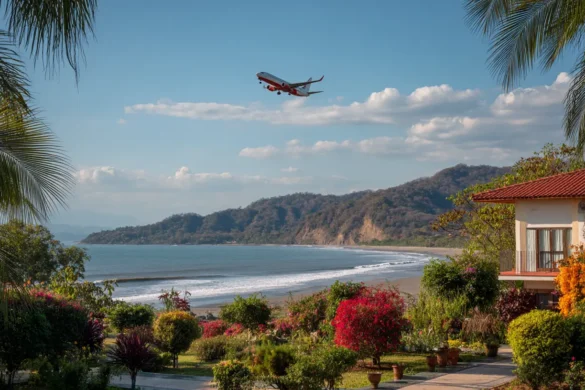These countries are leading the charge against GMOs. Get ready for fresh, natural food and some unforgettable travel experiences.
If you’re like me and prefer your food without any genetic modifications, these countries that ban GMO foods are where you’ll want to travel next. They’ve taken a stand, protecting their natural resources, farming traditions, and biodiversity by keeping GMOs out of their food supply.
What I love about these places is that they’re not just committed to going GMO-free…they’re incredible travel destinations, too. From breathtaking landscapes to the freshest, most natural produce you can find, these countries offer experiences that are as rewarding as the food is clean.
At a Glance: Top GMO-Free Countries
Here are my top picks for countries that ban GMO foods. Each one has something unique to offer, whether you’re into organic farming, biodiversity, or just love great food!
- Best for Organic Lovers: Bhutan, where you can dive into the world’s first 100% organic farming movement.
- Best for Crop Diversity: Peru, with thousands of potato varieties and stunning mountain landscapes.
- Best for Traditional Farming: Kyrgyzstan, where farming feels like stepping back in time, GMO-free.
- Best for Foodies: Greece, with fresh, non-GMO olive oil, honey, and local wine.
- Best for Nature Lovers: Madagascar, where biodiversity is protected, and vanilla farms thrive.
I’ve come across some amazing stories from these places, and I think you’ll love exploring them, too. Ready to check them out? Let’s dive in!
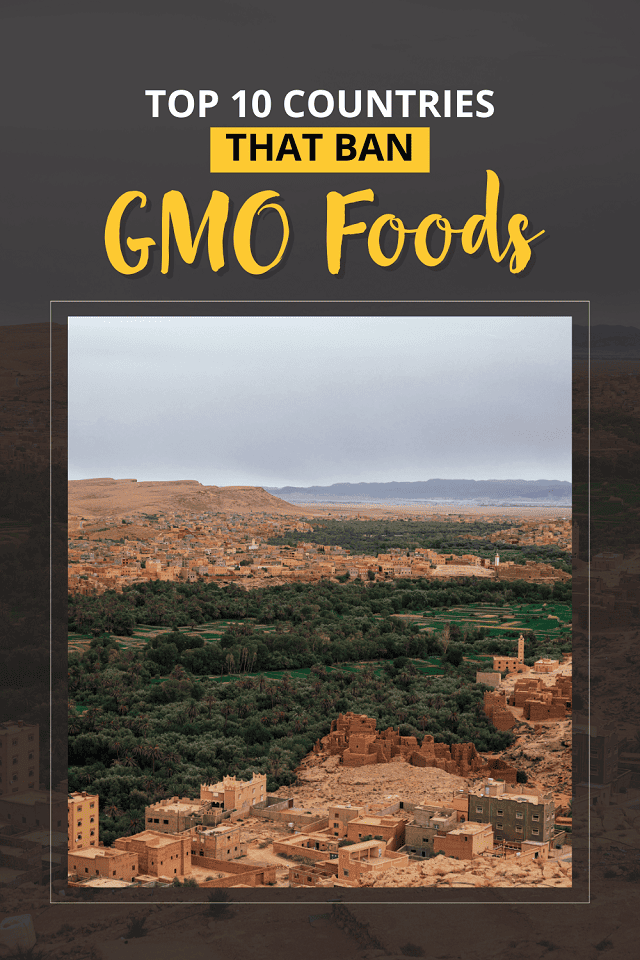
1. Bhutan
Located in the Eastern Himalayas, Bhutan takes the crown for its complete ban on GMOs. This tiny kingdom is carbon-negative, and its stance on GMOs aligns perfectly with its commitment to organic farming. Bhutan aims to become the world’s first 100% organic nation, and trust me, it’s a paradise for travellers seeking clean, natural food.
Bhutan’s capital, Thimphu, is a great place to start your GMO-free journey. Visit the Weekend Market to sample local organic produce and chat with farmers about their traditional growing methods.
For a deeper dive into Bhutanese agriculture, consider a farm stay in the Paro Valley. You’ll get hands-on experience with organic farming techniques that have been passed down for generations. Just be prepared for some hard work – you’ll break a sweat!
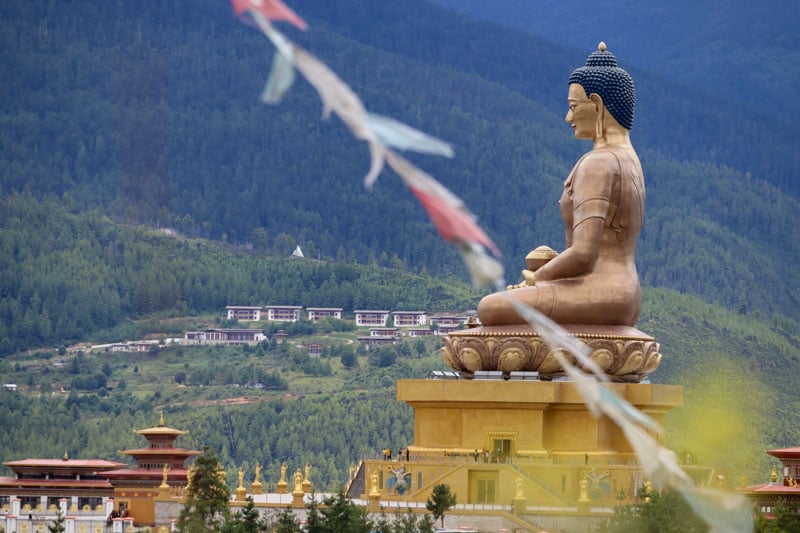
2. Peru
Peru has taken a strong stance against GMOs to protect its incredible crop diversity. They’ve got 3,000 varieties of potatoes and 55 types of corn…seriously, that’s wild!
I spent a day at the Surquillo Market in Lima, and I was like a kid in a candy store with all the different fruits and veggies. I couldn’t stop myself from grabbing something new at every stall, and I highly recommend you visit if you’re in the city.
If you’re near Cusco, check out the Parque de la Papa (Potato Park). It’s run by indigenous farmers who grow hundreds of potato varieties. You’ll learn so much about crop diversity, and trust me, the mountain views are just as impressive as the potatoes.

3. Austria
Austria has been at the forefront of the anti-GMO movement in Europe, with some of the strictest regulations on genetically modified crops. The country’s commitment to organic farming and sustainable agriculture goes hand in hand with its GMO-free stance.
In Vienna, don’t miss the Naschmarkt. Here, you can find an incredible variety of GMO-free produce and artisanal foods. For a deeper insight into Austrian organic farming, I recommend visiting the Mostviertel region, known for its traditional apple orchards and cider production. It’s like stepping into a postcard – and the cider? Absolutely worth the trip!

4. Russia
Russia might surprise you on this list, but it’s taken a firm stance against GMOs. With a complete ban on GMO cultivation and strict labeling laws, Russia is serious about keeping genetically modified ingredients out of its food supply.
For a different perspective, spend some time at a traditional Russian dacha. This is a countryside cottage where locals grow their own organic, non-GMO produce. It’s a peaceful escape from the city, and you’ll see firsthand how Russians have embraced self-sufficiency and natural farming methods.
✈️ My #1 Hack for Cheap 2026 Flights:
It’s January, so flight prices are climbing fast—but you don't have to pay them. I’m currently seeing roundtrips to Europe for under $300 (deals you won’t find on Google Flights).
Step 1: Join Going.com's Free Plan here. It takes 10 seconds and requires no credit card.
Step 2: If you're doing a big trip this year, grab the 14-day free trial of Premium. You can even use my code JON25 for 25% off.
Seriously, this is the single best money-saving tool I’ve used in 8+ years.
👉 Send me cheap 2026 flightsWant something hands-on? Join a local cooking class and create classic dishes like borscht using fresh, non-GMO ingredients. A true taste of Russia, minus the GMOs.

5. Venezuela
Venezuela has implemented a total ban on GMO seeds, prioritizing food sovereignty and traditional farming methods. This South American nation is working to preserve its local seed varieties and promote agroecology.
If you’re in Caracas, check out the Waraira Repano National Park farmers market. It’s only open on weekends, but it’s worth the wait. The variety of fruits there is mind-blowing.
If you’re up for an adventure, head to the Andes region. The high-altitude farming is fascinating, and it’s all GMO-free. Just pack some warm clothes – it gets chilly up there!

6. Ecuador
Ecuador made a bold move by banning GMOs right in its constitution. Talk about commitment! It’s all part of their passion for food sovereignty and protecting their biodiversity.
In Quito, I spent a morning wandering through the Mercado San Francisco, and honestly, it was an absolute highlight. The explosion of colors and smells made it impossible not to stop at every stall. The fresh, non-GMO produce was as vibrant as the city itself. If you’re like me and love diving into local food scenes, this market is a must.
If you have more time, head into the Amazon. Indigenous communities there offer unique experiences where you can learn about their non-GMO farming practices, all while being completely immersed in the jungle. Fair warning: the humidity is real, but it’s 100% worth the adventure!

7. Algeria
Algeria’s approach to GMOs is simple—no GMOs, period. This North African country is laser-focused on protecting its local agriculture and traditional farming methods. One of my good friend’s lives there and let me tell you: he’s one of the healthiest people I know.
Now, I haven’t made it to Algeria (yet!), but from what I’ve heard, the markets in Algiers are something special. People rave about the fresh dates, and I’m definitely adding it to my list.
Don’t miss the chance to see oasis agriculture in the Sahara. Farmers there have mastered the art of growing crops in one of the toughest environments imaginable, all without GMOs. It’s an eye-opener, and from what I hear, the landscapes are breathtaking.

8. Greece
Greece is one of the top countries that ban GMO foods in Europe, safeguarding its ancient agricultural practices. This Mediterranean paradise is all about fresh, natural ingredients. Think olive oil, vibrant vegetables, and honey that tastes like pure sunshine.
Instead of just sticking to the city, I recommend heading out to the Peloponnese region. There, you can visit family-run farms where they’ve been producing GMO-free olives and grapes for centuries. It’s the perfect spot to experience Greece’s organic farming culture firsthand while sipping some local wine and olive oil that’s been made the same way for generations.

9. Madagascar
Madagascar has made a strong choice to ban GMOs, and it’s all about protecting its incredible biodiversity. This island is home to some of the most unique ecosystems on the planet, and preserving them from the potential risks of GMOs is a priority for the country.
If you really want to dive into Madagascar’s agricultural roots, head to the rural areas where you can visit small, family-owned vanilla or cacao farms. Watching the farmers hand-pollinate vanilla flowers or harvest cacao beans without any GMOs gives you a true sense of the care they put into their land. Plus, the landscapes are breathtaking. You’ll enjoy lush, green fields surrounded by mountains and forests.

10. Kyrgyzstan
Kyrgyzstan might not be the first place you think of when it comes to GMO-free countries, but this Central Asian beauty has fully banned GMOs. It’s all about tradition here. The country’s farming practices are as natural as the sweeping mountain landscapes that surround them.
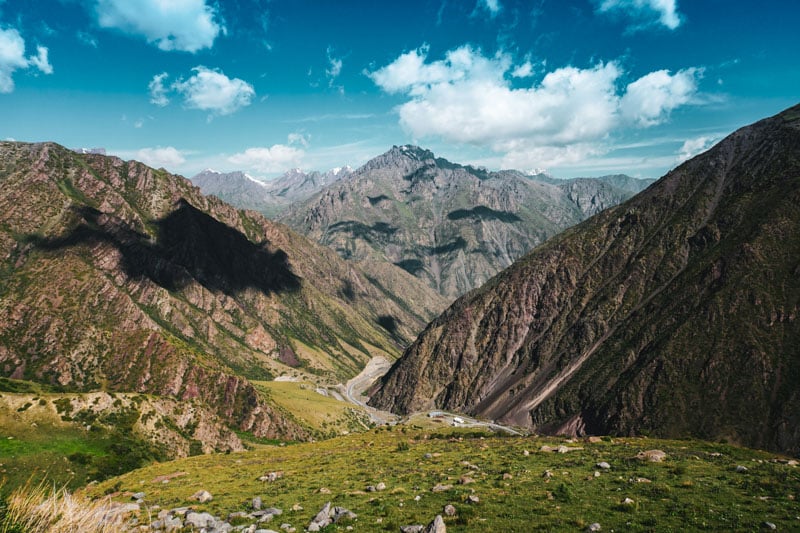
I haven’t been to Kyrgyzstan yet, but it’s high on my list. From everything I’ve heard, the real magic lies in its rural communities, where nomadic herders still roam the high pastures and small farms grow their crops the old-fashioned way—without any GMOs. It’s like stepping back in time, where nature and farming are still deeply connected.
If you’re someone who’s looking for an authentic experience, Kyrgyzstan offers something truly special. Whether it’s the fresh, natural produce or the breathtaking views of the Tien Shan mountains, this country is a perfect example of why banning GMOs helps preserve not only agriculture, but also a way of life.
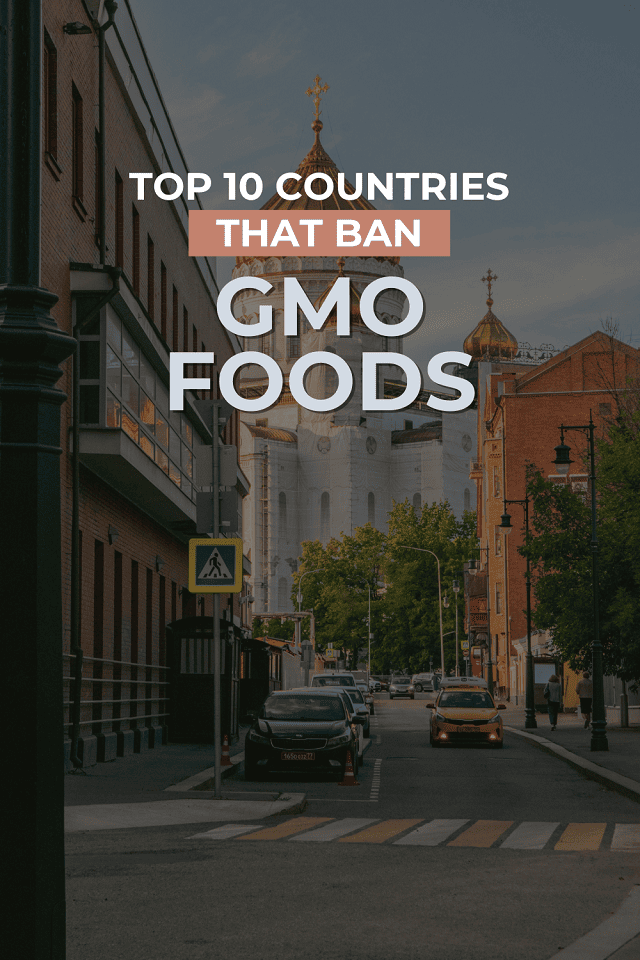
Global Viewpoint is a personal blog. All content is for informational and entertainment purposes only and does not constitute professional financial, medical, or legal advice.





